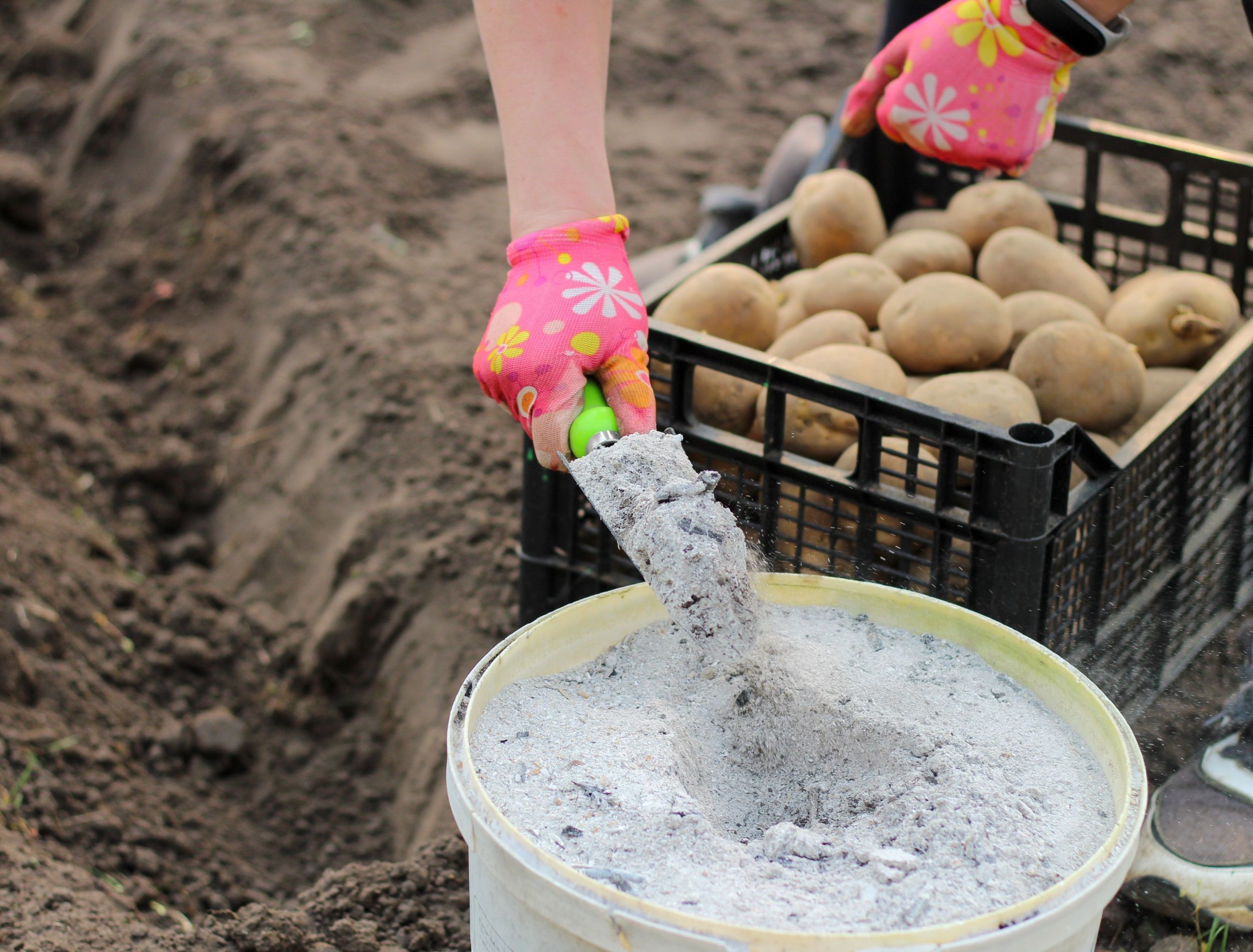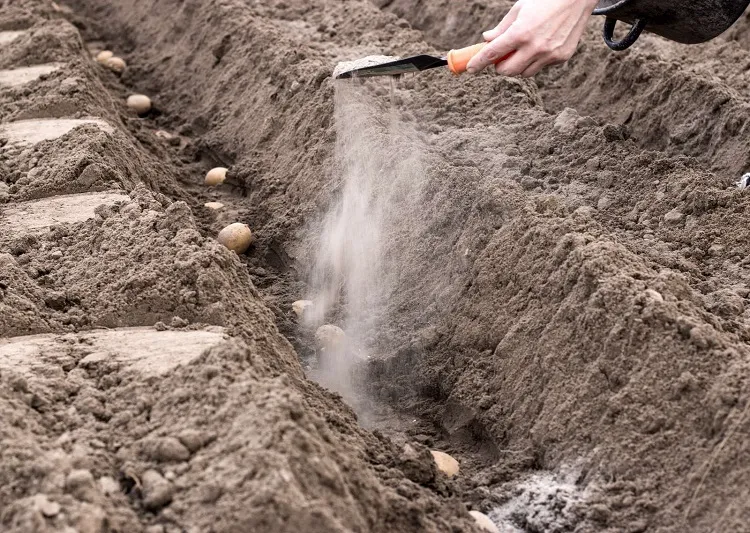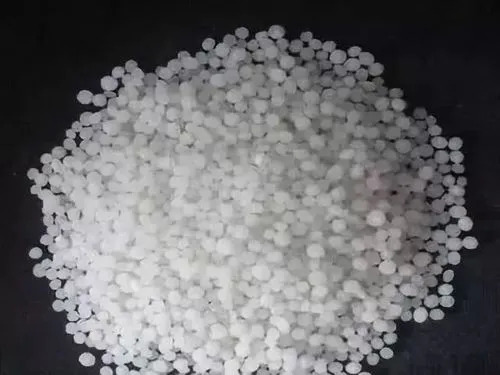Introduction
Choosing right fertilizer can determine whether the crops you plant will yield pure and healthy potatoes. Each crop needs its specific nutrients for them to thrive. If you’re looking for ways to grow the best potatoes, the best organic fertilizer for potatoes can be your ultimate solution.
Organic fertilizers, in addition to improving nutrient status, improve soil structure, increase soil water-holding capacity, and increase microbial activity, all of which contribute to maintaining and improving soil health and with it the health of those wonderfully nutritious potatoes. Organic agriculture is safe, healthy and good for the planet.
Understanding Potato Nutrition Needs
We know that potatoes are hungry crops and need a lot of nutrients to grow healthy and strong. The three nutrients vital for solid crop growth are nitrogen (N), phosphorus (P) and potassium (K) collectively known as NPK. Nitrogen is needed for good leaf growth, phosphorus is critical to strong root growth and tuber development, and potassium is needed for plant health and to help prevent disease.
These are nutritional demands that organic fertilizers can meet more effectively, both more productively and sustainably, than synthetic fertilizer ever could. Organic fertilizers are released into the soil slowly, over time, matching the rate at which the plant takes up the nutrients. This means that, unlike chemical fertilizers, nutrients provided by organic manure do not wash away in runoff but are taken up stronger fertilizers, creating a vicious cycle of degradation that triggers global processes that remove or lock up nutrients from the soil.
And finally, organic options such as composted manure or green manure also add organic matter to the soil, improving its structure, allowing it to retain both nutrients and moisture. All of these factors contribute not just to this year’s yield but also to the fertility and long-term health of the soil, making sure that it is still good enough for planting the crops next season.

Types of Organic Fertilizers Suitable for Potatoes
If you are making a choice of the best organic fertilizer for potatoes, then these fertilizers have multiple effective types that a gardener can use due to their numerous nutritious properties. There are three most commonly used fertilizers, which will be considered today – these are compost, manure, and bone meal.
Compost is an all-round good choice, providing a balanced supply of nutrients with some added benefits. It also improves the soil structure, helping it hold on to more water. Like manure, it’s high in potassium, so it would supply the plant with some of its potassium needs, and it slowly releases nutrients too, ideal for a plant like the potato, which takes up nutrients slowly. Compost adds good bacteria to the soil as well, which can help break down other organic matter into nutrients.
Ivar also uses manure – from cows and horses, but also from poultry. Rich in nitrogen, a nutrient important for the leafy vigour of potato plants, manure’s chief contribution is organic matter that improves soil fertility and structure by increasing its ability to hold water.
Bone meal has a high content of phosphorus, which is crucial for plant growth, especially for tubers. Using bone meal can improve rooting and yield. Bone meal should be applied at the planting stage to provide a phosphorus boost in the early stage of potato growth.
But each does the job better than the others in some aspect of potato-growing, and it follows from this that a knowledge of compost, manure and bone meal would enhance a farmer’s green thumb by helping to create an ideal growing environment for potatoes. That is to say, the plants would be vigorous and pronounce, and so would the harvests.
How to Choose the Best Organic Fertilizer for Your Soil Type
The choice of the best organic fertilizer for potatoes is also dependent on what type of soil you might have. Potatoes grow best in well-drained loam soil, but you can have good results growing them in other types of soil. This, however, requires the knowledge of mixing certain fertilizers to overcome any deficiencies of your soil.
Here’s how you can assess your soil and select the appropriate organic fertilizer:
Step 1: Soil Test
Soil test your garden soils before you plant to determine the pH and the nutrient profile – you need to know what your soil is lacking and what it is overfull of, so as not to waste your efforts and money.
Matching Fertilizer to Soil Type:
- Clay Soil: Heavy clay is a sort of ‘sticky’ soil because it has excellent nutrient holding capabilities and doesn’t drain very well. That means the soil stays saturated longer than well-drained soils and is less than pliable for planting. For clay soils, using organic compost can greatly benefit the soil by improving drainage and aeration, thereby reducing density.
- Sandy Soil: Sandy soils drain rapidly and do not hold nutrients well, while well-rotted manure (compost) increases its nutrient holding capacity and structure.
- Loamy Soil: Loam is a great soil for potatoes, but in order to keep it fertile, a balanced mixture of compost and bone meal can help provide a reliable supply of all the needed nutrients.
Selecting and Applying Fertilizer According to Your Soil’s Needs: This means that once you are able to identify your soil type and nutrient profile, you can select a fertilizer that fits with these characteristics. For example, if you have a deficient soil, a more nutrient-dense manure might be better. If your soil has balanced nutrients but poor structure, compost might be a better way to improve your soil.
Knowing and adapting your approach to your soil type will help your potato plants take up the best nutrients for growth, thus maximizing the yield of your crop while helping your ecosystem grow and function healthily.
Application Tips for Maximum Yield
Applying best organic fertilizers for potatoes perfectly is as important as selecting fertilizer type. Yeah, you need your potato plants to absorb a certain amount of nutrients and the right application facilitates this mechanism. The information below can be your tips for applying organic fertilizers:
Time of Application: Fertilization should occur at planting time by incorporating fertilizer into the soil before the seed potatoes are placed. This will provide them with the nutrient boost they need as they start to grow. A second application should be made approximately at 6 inches of plant growth to maintain that nutrient level for critical growth phases.
Method of Application:
- For broad areas, fertilizer shall be broadcast by spreading it evenly over the soil surface before planting, so as to have an identical concentration of potassium to uniform growth of the potato plants.
- Side dressing: After plants are established, fertilizer can be applied to the rows at a Burkina Faso side dressing to avoid root damage. ‘it places the nutrients precisely where it is needed most’
How much fertilizer do you need? First, it depends on the level of nutrients in your soil to start with – hopefully you have your soil test results from a few years back! Over- or under-dosing can be just as detrimental. Not only will over-fertilizing harm your crop, but it will also see you lose nutrients by leaching them into the environment and so polluting your environment. The recommended rates for fertilizers are based on soil test reports and crop requirement.
Burial in the Soil: Any fertilizer not applied through deep tilling must be well mixed with the soil in order to prevent runoff or volatilization of the nutrients, and to ensure they are readily available to potato roots. This can be done mechanically with tilling equipment, or by hand with garden tools, depending on the size of your plot.
If you use these tips to apply the organic manure, the likelihood of your potato plant growing abundantly and your production trebling is now higher than it was before. That, my friend, is sustainable farming at its best – not only in terms of the impact you can make on the environment but also the state of the soil you work with, as it gets better and better day by day.

Organic Fertilizers and Sustainable Farming Practices
The use of organic fertilizers in the cultivation of potatoes is principally important as it is related to the main idea of support for sustainable farming. In addition to increasing the target of the crops, it also provides a significant contribution to the general concept of sustainable agriculture which in-turn helps for improvement of the environment and implementation of further management in the agricultural field.
Environmental Benefits:
- Less Chemical Runoff: Organic fertilizers decrease the chance of chemical runoff to rivers and streams, which can cause eutrophication and harmful algal blooms, killing fish and compromising water quality.
- Soil Health: As organic matter breaks down in these fertilizers, it improves soil structure and boosts its ability to retain water. Healthy soil sustains agricultural production and fertility, providing the foundations for sustainable farming by supporting the replenishment of nutrients without synthetic inputs.
- Biodiversity: Since natural fertilizers support a more diverse biological ecosystem, where different bugs, beetles, worms, and other microorganisms do much of the actual legwork in building the soil fertility, the natural activity in the soil helps keep pests and diseases at bay, which in turn eliminates the use of chemical pesticides.
Sustainability in Practice:
Organic fertilizers improve the short-term health of a potato crop, but also the long-term health of the soil. Rotating crops and green manures, for example, stop nutrients from washing away and build up organic content in the soil.
Another well-known advocate of more environmentally sound agricultural practices, say Dr. John Doe, says: ‘Organic fertilization is the future of farming. We need to fertilize not soils, but the organisms living within them. Organic fertilizers help to create healthier and more vibrant crops because they form connections between plants and their living partners in the soil. This will help to eventually entirely eliminate the use of chemical fertilizers, which will be a significant step on the road to sustainable agriculture. Not only will it save money, but it will, ultimately, help to reduce environmental degradation’.
What it means is, in effect, that farmers who use organic fertilizers are growing not just potatoes but the soil, practices to support it down the generations. In this sense, organic farming has to be the right choice anyway.
Conclusion
To promote organic fertilizers to grow the potatoes equals to promote healthy environment and new green value tenet. Additionally, organic cultivation does help the farmers to grow more potatoes and facilitate their perfect growth. It is beneficial for the development of ecological system.
In conclusion, either if you are a small-scale gardener or any large agricultural producer, the option of making use of agricultural organic fertilizers is a lucid one. It is evident that the advantages of this kind of agriculture go beyond the scope of the agricultural activity itself, providing for a more balanced and sustainably well-taken soil, an environmental-friendly approach for more agricultural crop yields and a better care for biodiversity. So, it seems that besides breeding all these very nutritious potatoes we’ll have the pleasure to eat in the future, we can also be rest assured our lands will still be here for the next generations to come.
Using organic manure and other sustainable practices is not just something we could do but we must do. It is about growing food that is good for the stomach but also benign to the earth. Let this be the motto of our own yesterday, today and the tomorrow of farming.
Here are three recommended organic fertilizers for potatoes, based on recent research and product reviews:
- Jobe’s Organics 09526 Organic All-Purpose Granular Fertilizer – This granular fertilizer is well-suited for potato growth, featuring a balanced NPK ratio of 4:4:4. It contains Jobe’s Biozome, a unique blend of microorganisms that improve soil health and enhance nutrient breakdown, promoting faster growth and resistance against diseases. This product is 100% natural, though it is noted to be slightly more expensive and potentially harmful to pets if ingested.
- Espoma Garden Food Fertilizer – Known for its phosphorus-rich composition (NPK 5-10-5), this fertilizer is optimal for encouraging the growth of tubers, which is crucial for developing potatoes. It’s easy to apply and provides rapid nutrient absorption, although it may not be suitable for use on very hard ground. It also contains calcium, which is beneficial for the growth of potatoes.
- Dr. Earth Organic 5 Tomato, Vegetable & Herb Fertilizer – This versatile organic fertilizer (NPK 4-6-3) not only works well for potatoes but also for other vegetables and herbs. It is composed of organic ingredients such as fish meal, kelp meal, and alfalfa meal, providing a rich nutrient mix that enhances the taste and health of the potatoes. The probiotic formula included helps to maintain soil health and balance. It is available in various sizes, allowing for economical purchases depending on your gardening needs.







